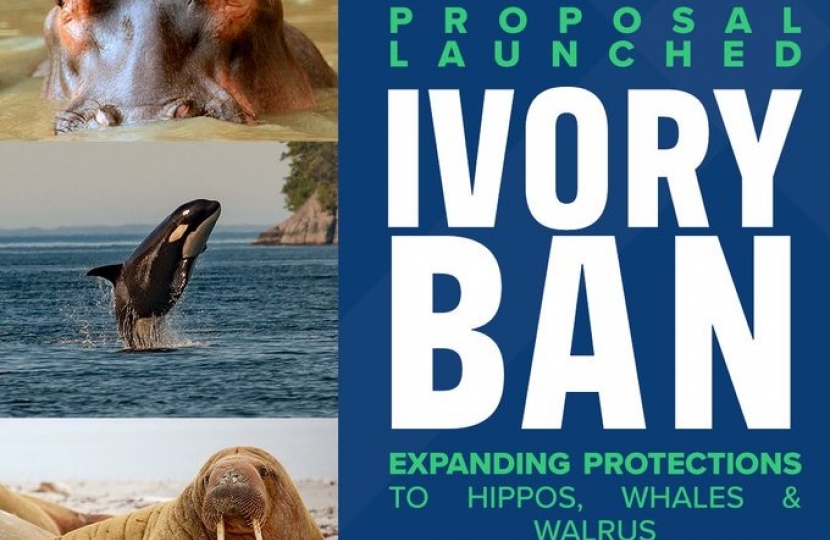
The government has launched an eight week consultation on extending its world-leading elephant ivory ban to protect other at risk species.
Elephants are not the only species targeted for their ivory. Hunting practices also contribute to the trade in ivory, with killer whales and sperm whales targeted for their teeth, as well as narwhals and walruses for their tusks.
Hippos are defined as vulnerable by the International Union for the Conservation of Nature (IUCN), with a population less than 130,000 estimated to be left in the wild. Their sedentary nature coupled with their dependence on water makes them easier to hunt and more susceptible to poaching. Hippos are now the most at-threat species from the trade in ivory after the elephant as they are found in the same geographic area, and the infrastructure, trade routes and networks are already in place to support the illegal trade.
Arctic species such as walrus and narwhals face pressures from climate change which further makes the trade in ivory from these species unsustainable. Accurate population estimates for narwhals are difficult but it is thought that are only 75,000 narwhals alive in the wild. Their tusks have long been a subject of fascination - they can grow as long as 10 feet and are thought to have sensory capabilities, with up to 10 million nerve endings inside.
Richard Fuller, MP for North East Bedfordshire, said:
Hippos, walruses, narwhals and whales are targeted by poachers for their tusks and teeth and are not currently covered by the Ivory Act.
That is why the government is building on its historic Ivory Act – which will introduce one of the toughest bans of its kind in the world – by seeking responses to the consultation on protecting other ivory bearing species by extending the ban to include non-elephant ivory.
By seeking views on options to protect other ivory bearing species, we will continue to lead international conservation efforts to protect endangered animals around the world.
To take part in the consultation, which closes on 11 September 2021, please visit this page.

